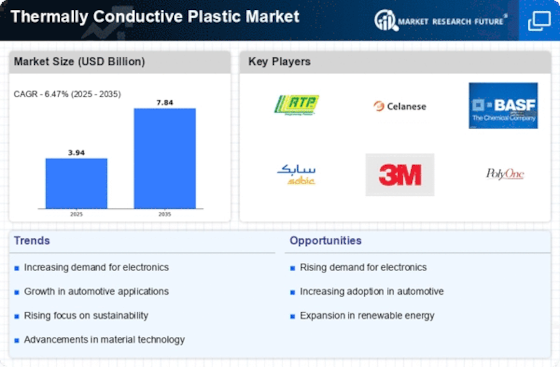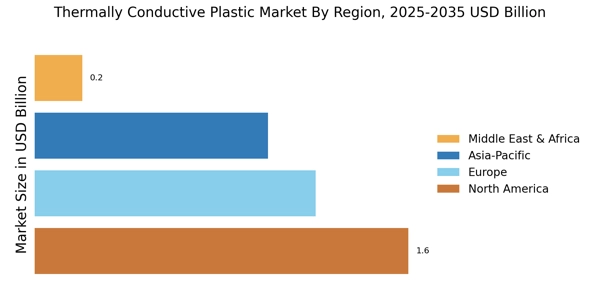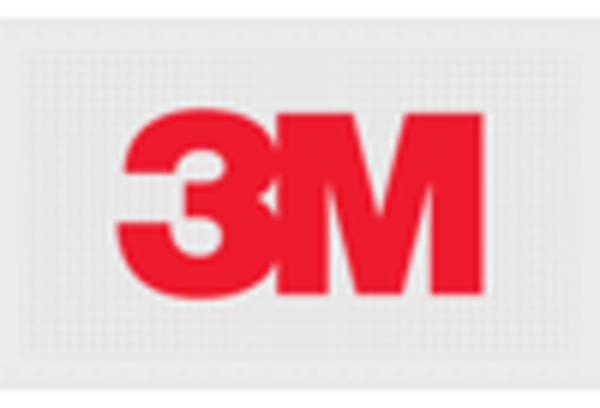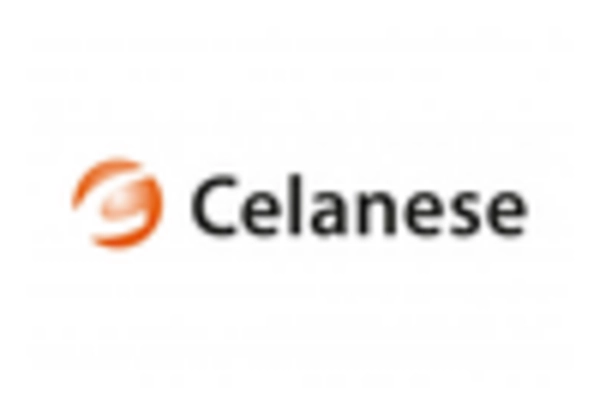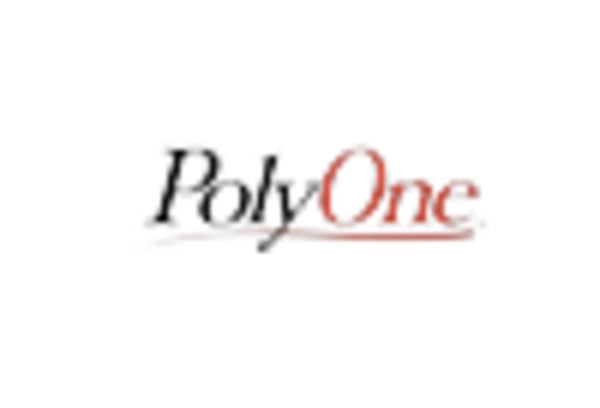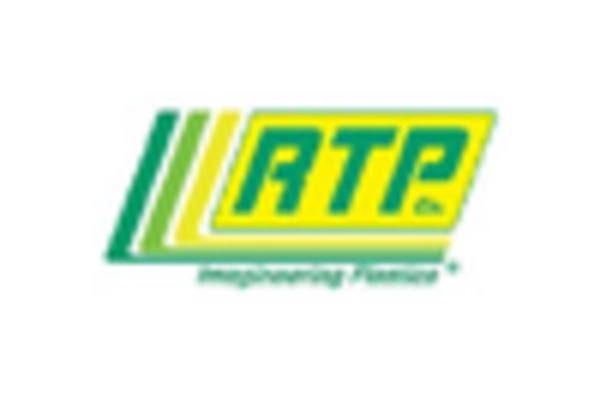Growing Focus on Energy Efficiency
The Thermally Conductive Plastic Market is increasingly driven by a global focus on energy efficiency. As industries strive to reduce energy consumption and enhance sustainability, thermally conductive plastics offer a viable solution for effective heat management. These materials are being adopted in various applications, including HVAC systems and industrial equipment, where efficient thermal performance is essential. Recent market data highlights a growing trend towards the use of thermally conductive plastics in energy-efficient designs, suggesting that this focus will continue to propel market growth. The integration of these materials aligns with broader sustainability goals, making them an attractive option for manufacturers.
Rising Demand in Consumer Electronics
The Thermally Conductive Plastic Market is significantly influenced by the burgeoning consumer electronics sector. With the proliferation of high-performance devices, there is an increasing need for materials that can manage heat effectively. Thermally conductive plastics are being utilized in smartphones, laptops, and gaming consoles, where efficient thermal management is crucial for performance and longevity. Market data suggests that the consumer electronics segment is expected to witness substantial growth, driven by innovations in product design and the need for compact, lightweight materials. As manufacturers prioritize thermal efficiency, the adoption of thermally conductive plastics is likely to rise, further solidifying their role in this dynamic market.
Advancements in 3D Printing Technologies
The Thermally Conductive Plastic Market is poised for transformation due to advancements in 3D printing technologies. The ability to produce complex geometries and customized components using thermally conductive plastics is opening new avenues for applications across various sectors. This innovation allows for the creation of lightweight, efficient thermal management solutions tailored to specific needs. As 3D printing becomes more accessible and cost-effective, the demand for thermally conductive plastics is expected to surge. Market analysis indicates that this trend could lead to a diversification of applications, particularly in industries such as aerospace and healthcare, where precision and performance are paramount.
Emerging Applications in Renewable Energy
The Thermally Conductive Plastic Market is witnessing emerging applications in the renewable energy sector. As the world shifts towards sustainable energy solutions, thermally conductive plastics are being utilized in solar panels and wind turbine components, where effective thermal management is critical for performance. The ability of these materials to withstand harsh environmental conditions while providing efficient heat dissipation makes them suitable for renewable energy applications. Market projections indicate that the adoption of thermally conductive plastics in this sector is likely to increase, driven by the global push for cleaner energy sources. This trend not only enhances the performance of renewable energy systems but also contributes to the overall growth of the thermally conductive plastic market.
Increasing Adoption in Automotive Applications
The Thermally Conductive Plastic Market is experiencing a notable increase in demand due to the automotive sector's shift towards lightweight materials. As manufacturers seek to enhance fuel efficiency and reduce emissions, thermally conductive plastics are being integrated into various components, such as battery housings and electronic enclosures. This trend is further supported by the growing emphasis on electric vehicles, which require efficient thermal management solutions. According to recent data, the automotive segment is projected to account for a substantial share of the thermally conductive plastic market, indicating a robust growth trajectory. The ability of these materials to dissipate heat effectively while maintaining structural integrity positions them as a preferred choice in automotive design.


